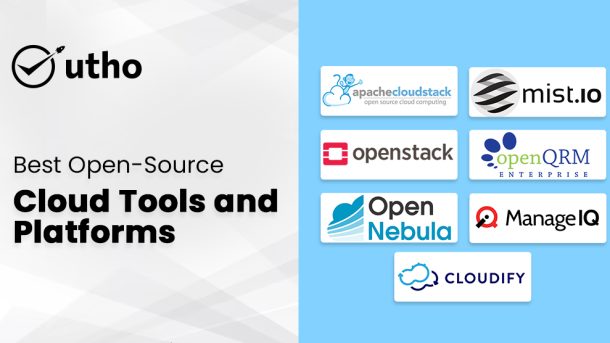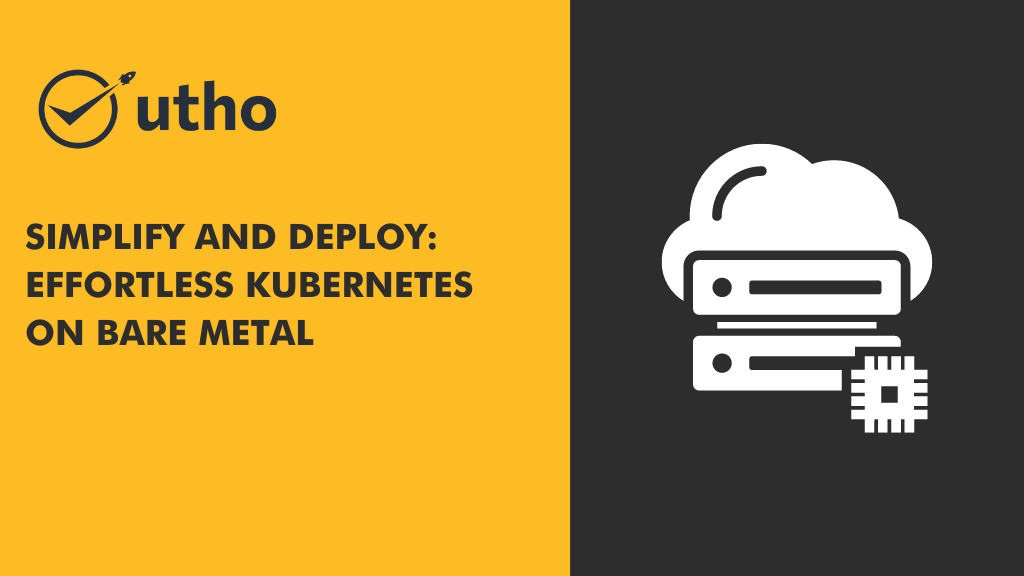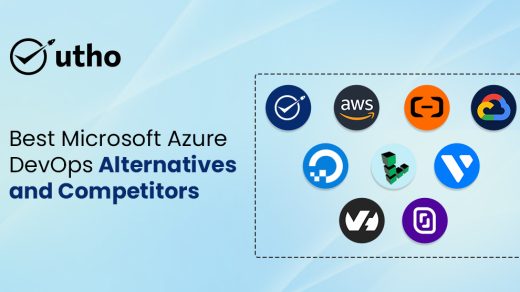With the rise of open-source technologies in the past decade, they have become increasingly common even in traditional on-premise systems. However, as the cloud takes over, traditional on-premise systems are becoming outdated.
Businesses are now focusing on transitioning their workloads to the cloud, which requires specific tools. Open-source technologies play a crucial role in this transition. When moving to the cloud, it's essential to have excellent management tools in place. Fortunately, there are cloud-compatible open-source tools designed specifically for resource management. Additionally, many companies prefer open-source software development to tailor-make tools that seamlessly integrate with their business environment.
This blog highlights some effective open-source cloud tools that can simplify the process for businesses migrating to the cloud.
Understanding Cloud Management
Cloud management is an important aspect that companies should focus on. This includes monitoring the cloud infrastructure to ensure effective data management.
Cloud management develops and oversees solutions through diverse tool sets and methods. These tools make security, performance, and compliance tasks easier in a cloud environment.
By managing cloud operations well, companies can optimize many aspects. These include resource allocation, cost tracking, and compliance. This makes for a smoother and more efficient cloud operation.
How Cloud Management Environments Work
CMP is deployed in existing cloud environments. It's a virtual machine (VM) with a database and a server. The server uses application programming interfaces (APIs). They use them to connect the database to virtual resources in the cloud. The database collects virtual infrastructure performance data. It sends this data to the web interface for analysis. Administrators can then use this interface to evaluate cloud performance.
The system relies on the operating system. It uses it to control cloud tech and use cloud tools.
Key features of CMP
Strong integration with IT infrastructure:
CMP must adapt to a business's needs. It needs to fit its operating systems, applications, and storage frameworks.
Automate manual tasks
CMPs should have self-service functionality to automate tasks without human intervention.
Cost management
CMPs should help organizations forecast costs accurately and report clearly. This makes it easier to use and manage various cloud services.
Service Management
CMPs must help IT teams monitor cloud services. They also help with capacity planning, workload deployment, asset management, and case management.
Management and Security
CMPs should let admins enforce policy-based cloud resource management. They do this by providing security features, like encryption and access control.
Why Choose Open-Source Cloud Management Tools
Businesses are looking for simplicity and flexibility to avoid complexity. Open-source solutions offer just that.
These open-source cloud tools help prevent problems and play an important role in risk mitigation. Therefore, companies should consider open-source tools
Take advantage of community contributions
Open-source cloud tools evolve with community input. They enable collaboration in software development and problem-solving.
They are not owned by any company. This gives companies the freedom to customize solutions to their needs.
Also, they often support cloud services. They make deploying them easier, which improves efficiency.
Using Forking
Forking lets developers adapt source code. They can create custom solutions based on business needs.
Businesses benefit from multi-solution features. They simplify processes and reduce reliance on a single vendor.
Forking can apply to whole systems or to parts. It offers different chances for development and innovation.
Anticipating future changes:
Innovations and advancements in open-source cloud tools are inevitable. They drive businesses forward.
Knowing about possible changes gives companies a strategic advantage. It also gives them insight into new trends.
Here are the 7 best open-source cloud tools for businesses
Open-source cloud management environments aim to simplify cloud management. They do this by providing automation and abstraction. This means developers and ops teams can focus on tasks. They need not struggle with the complexities of cloud infra. While proprietary options exist, open-source solutions offer unique benefits. But, the choice between open and closed source depends on your organization's needs. It also depends on its culture.
Apache CloudStack
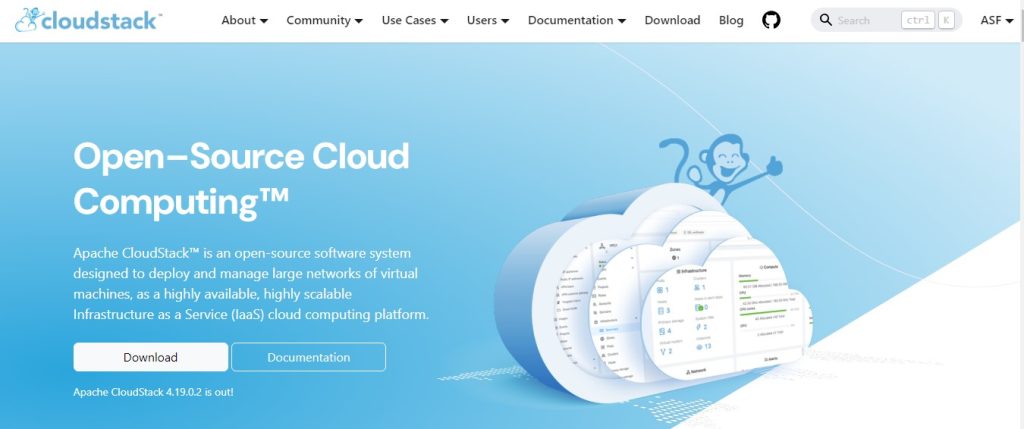
Apache CloudStack stands out as a robust open-source cloud management system. It works as an Infrastructure as a Service (IaaS) platform, suitable for both private and public clouds. In addition, it hosts non-technical parts. It integrates with other platforms through APIs.
Mist.io
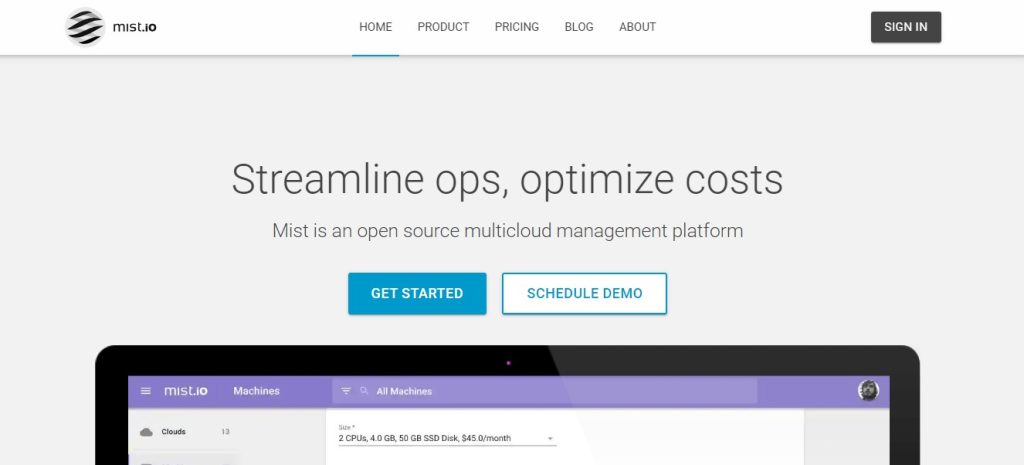
Mist.io is a simple open-source cloud tool designed to eliminate vendor lock-in and complexity. It offers usage reporting. It has role-based access control (RBAC), provisioning, and instrumentation. Mist.io makes it easy to monitor and automate servers in public and private clouds. It gives alerts for networked devices. They let businesses fix problems fast.
OpenStack
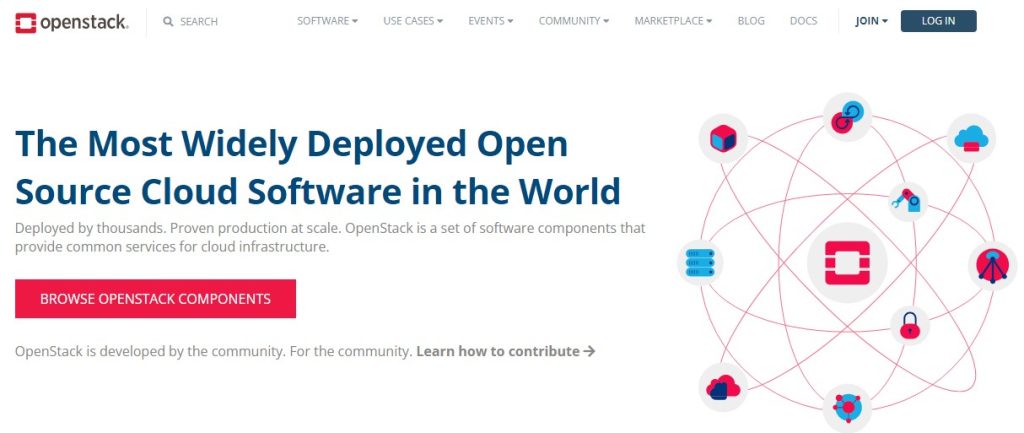
OpenStack is a widely used open-source cloud system. It includes several projects aimed at building and managing cloud computing. Its projects cover the core functions of cloud computing. These include computing, networking, storage, identity, and image management. OpenStack supports many cloud types. It works with top virtualization platforms, like OpenStack and VMWare.
OpenQRM

OpenQRM is a versatile open-source cloud tool. It is made for data centers with many kinds of machines. OpenQRM provides a fully automated workflow engine. It is for deploying bare metal and virtual machines (VMs). It simplifies the management and monitoring of diverse data center and cloud capacities. It hosts tiered services as virtual machines. These include storage, networking, virtualization, monitoring, and security.
ManageIQ
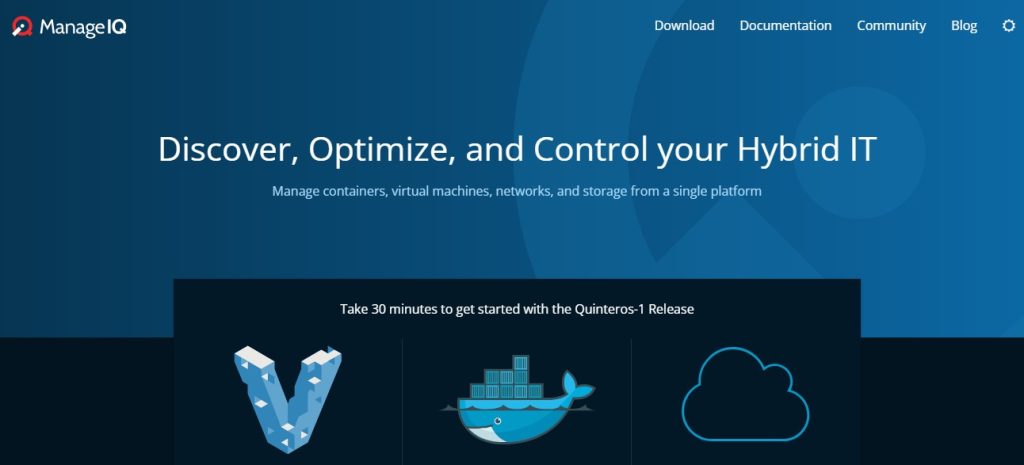
ManageIQ is a complete open-source cloud tool. It works for hybrid IT environments and supports both public and private clouds. It uses the Ruby on Rails framework. It smoothly works with virtualization platforms like OpenStack and VMWare. ManageIQ runs on many technologies. These include virtual machines, containers, and clusters. It addresses many business needs.
OpenNebula
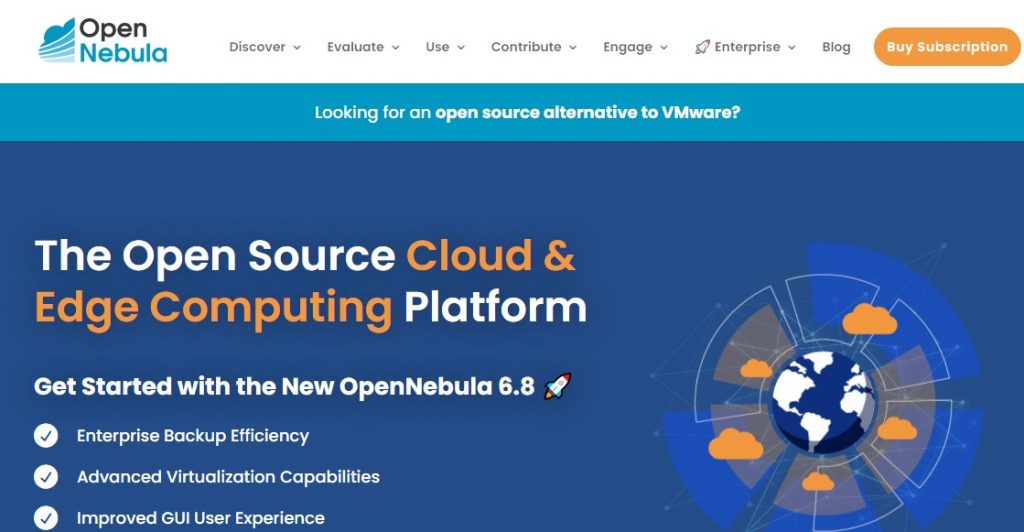
OpenNebula is powerful and flexible. It is an open-source cloud management system. It makes private cloud deployment and data center virtualization simpler. It helps manage virtual infrastructure. It works in private, public, and hybrid IaaS environments. OpenNebula offers simple, low-cost, and reliable solutions. It lets you manage and monitor storage, networking, and virtualization in the same IT infrastructure.
Cloudify
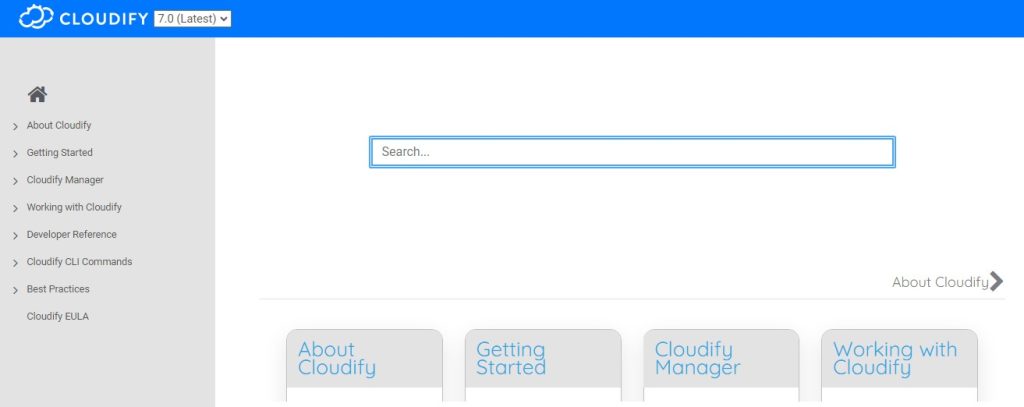
Cloudify is a template-based open-source cloud tool. It is ideal for orchestrating, automating, and abstracting multi-cloud environments. It makes deployment, setup, and recovery easier. It supports apps and web services on different cloud platforms through automation.
Advantages of cloud management for companies
Cloud management offers several advantages for companies:
Faster delivery of solutions
Companies get instant access to different platforms. This allows for faster and easier delivery of solutions.
Cost savings
Cloud management helps reduce costs. It does this by replacing staff costs with cheap services. It also cuts network maintenance costs.
Modernization
Moving to the cloud lets businesses use modern tech and services. This ensures they stay relevant in today's market.
Improved flexibility
Cloud management makes processes more flexible. It makes them accessible by enabling access to authorized devices and information.
Improved security
It improves security. It protects vulnerable and poorly managed data. It also cuts the risk of intrusion and hacking linked to cloud services.
Integration features
Cloud management integrates with various tools, software and systems to achieve better results.
Operational flexibility
Cloud management provides flexibility to networks and data centers. It allows businesses to continue with minimal downtime in critical situations.
Global Open Source Cloud Management Platform Market Dynamics
The market for open-source cloud management platforms is changing fast. This is due to changing customer needs, new technology, and new rules.
Market Trends
Hybrid and Multi-Cloud Strategies
Organizations are using hybrid and multi-cloud architectures more and more. They use both public and private clouds to gain their benefits. This trend increases the demand for open-source cloud management platforms. They offer interoperability and flexibility.
Automation and Orchestration
Cloud management automation and orchestration gain higher priority. It streamlines operations, improves efficiency, and cuts costs.
Integration with DevOps practices
Integration with DevOps tools and practices becomes critical. Open-source cloud managers now support continuous integration and delivery (CI/CD). This enables seamless collaboration between dev and ops teams.
Market Challenges
Security Issues
Data security is a big challenge. Organizations face data breaches, compliance issues, and problems with open-source software.
Vendor lock-in
Open-source solutions have benefits. But, they have a risk of vendor lock-in. This is especially true for organizations. They heavily rely on plug-ins or services from certain vendors.
Implementation and Management Complexity
Using and managing open-source cloud platforms can be complex. They need special skills and resources. These can challenge some organizations.
Risks of Using Open Source
When using open-source cloud tool, platforms, and code, you must understand the risks they pose. Knowing these risks will help you assign security resources better. It will also help you protect your systems.
Lack of proprietary support
Open-source products usually lack official customer support. But, you can get it if you choose a managed service or hosting with added features. Most open-source cloud tools get support from an informal and unstructured community. Assistants are under no obligation to assist you and support is not available 24/7 or on-demand. Being active in the community is key. It helps you stay up-to-date on the latest issues and best practices.
Liability Risks
Using open-source components requires solving complex licensing issues. There are over 200 open-source licenses. Each has unique rules and restrictions. You must ensure that you follow them. This also applies to products you use that contain open-source components.
Also, security is a big problem. If the open source code has security holes and your data is stolen, you are responsible. Traditional software vendors handle security. Open-source components rely on community efforts. But, these efforts may not always be secure.
Widely Known Vulnerabilities
The communities and regulators often disclose vulnerabilities in open-source components. This transparency helps resolve issues fast. But, it also gives attackers detailed information to exploit. This risk is higher in public clouds. Resources in them are more exposed to the Internet.
Let Utho help you choose the best cloud management tool
If you are looking for cloud infrastructure management solutions, Utho is here to help. We guide you in choosing the ideal cloud management solution for your needs. Our team is experienced. We know the benefits of different cloud tools. We can help you choose the best open-source one for your business.
Utho supports popular infrastructure management tools. Developers prefer them. They include Terraform, GO Lang, CLI tools, and REST API. Let our experts support you to keep your cloud applications running smoothly.

